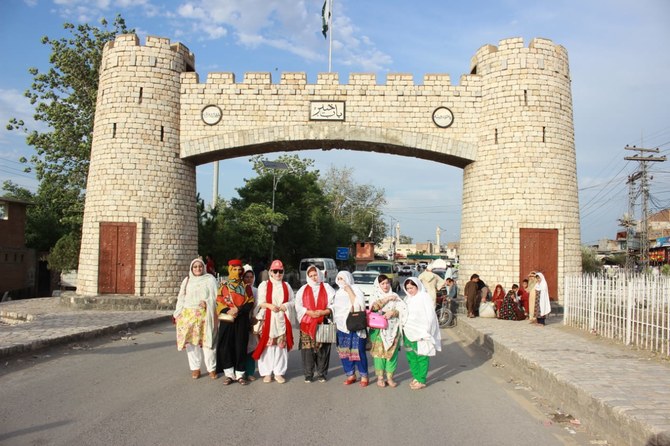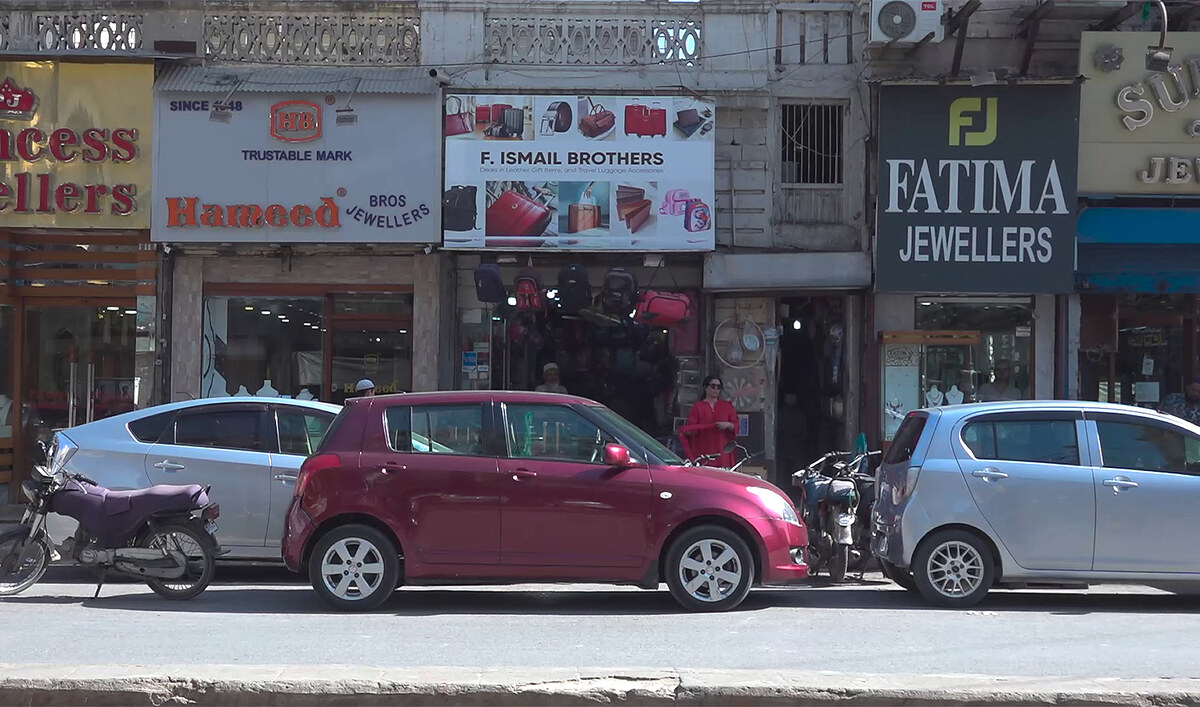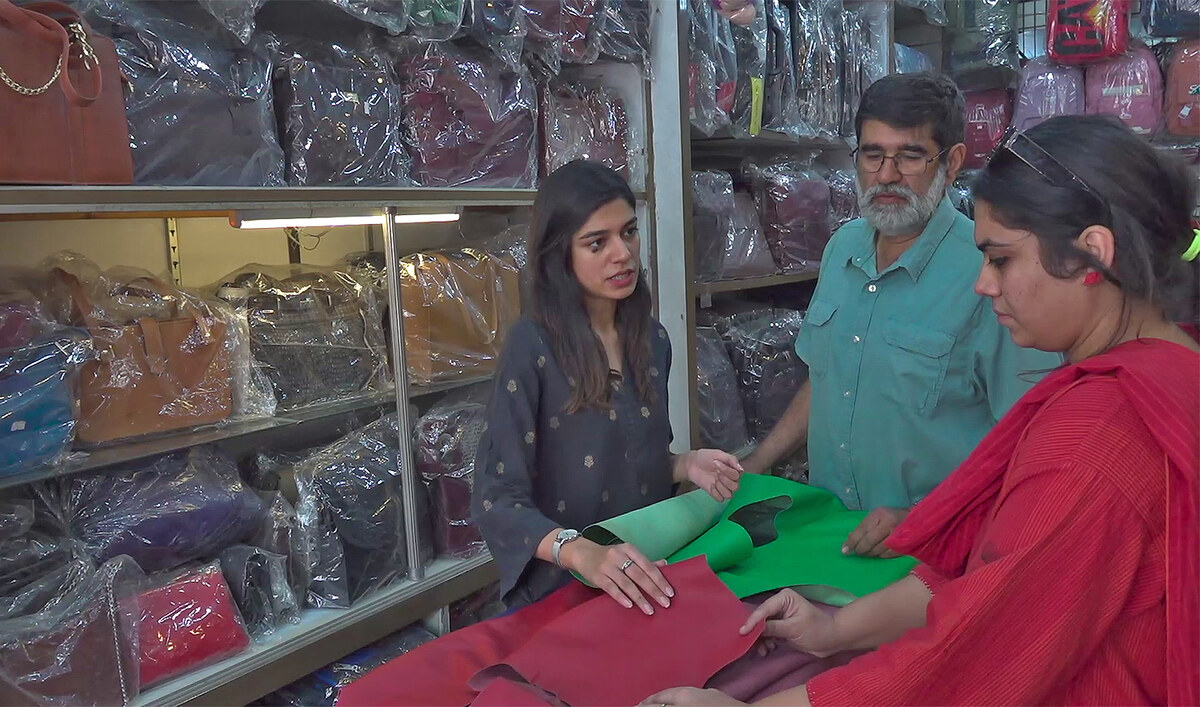PESHAWAR: Naheed Afridi has spent a good part of the last decade rallying women to fight for their rights in one of the country’s most conservative regions and campaigning against a much-criticized British colonial law that has for decades denied basic legal rights to the people of Pakistan’s northwestern tribal belt.
Now she is ready for the next step: contesting from the Awami National Party platform in next month’s provincial assembly elections for seven lawless tribal regions previously known as the Federally Administered Tribal Areas.

This poster of Naheed Afridi, which went viral on social media websites, is shared by party workers with supporters during Afridi’s election campaign on June 09, 2019. (Picture provided by Naheed Afridi's election team)
Last May, Pakistan’s parliament voted to merge these borderlands into the country’s political and legal mainstream, granting the area’s five million majority ethnic Pashtuns the same constitutional rights as other Pakistanis.
The first-ever provincial elections in the newly merged areas are now scheduled for July 20. But that’s not the only first: in a region where women’s movements have been severely restricted and where they rarely leave their homes unless accompanied by male relatives, three women have decided to contest the polls — two on a party ticket and one on a seat reserved for women.

Women workers of Awami National Party have played an active role in Naheed Afridi’s campaign for Khyber Pakhtunkhwa’s provincial assembly elections; in this picture they run a door-to-door campaign to convince voters to elect their candidate on June 09, 2019. (Picture provided by Naheed Afridi's election team)
One of them is Afridi, 40, who is running on the secular ANP party’s ticket for constituency PK-106 in Jamrud Tehsil of Khyber District.
A single woman who hails from Tirah valley on the Afghan border and studied philosophy at the University of Peshawar, Afridi has worked most of her adult life as a rights campaigner. Her grandfather, a member of the nonviolent Khudai Khidmatgar movement led by Khan Abdul Ghaffar Khan — a popular ethnic Pashtun independence activist — was her inspiration for challenging the rigid norms of conservative tribal society.
“No doubt, I am challenging the status quo and I want to tell the world that Pashtun women are as strong as anyone else,” Afridi told Arab News in an interview on the campaign trail in Godar Kalay, a village in Jamrud. “The women of my area have seen so many miseries. I am from among them, which is why they openly discuss their problems with me and which is why they will choose me as their representative.”

Women are rarely allowed to enter a hujra – or a male guest room – in Pakistan’s conservative northwestern Pushtun territories but Naheed Afridi and her supporters are challenging social norms as they run their election campaign in PK-106, a constituency in the Khyber District of Pakistan, on June 09, 2019. (Picture provided by Naheed Afridi's election team)
Contesting against Afridi, among others, is the son of a billionaire legislator and another popular male candidate from the ruling Pakistan Tehreek-e-Insaf party.
Over the years, the lawlessness of the tribal regions from which Afridi hails have provided a haven for militants, gun runners and drug smugglers, with residents complaining they have been caught between the brutality of the militant groups that sheltered there and a state that has tried to combat them through armed operations.

Awami National Party candidate Naheed Afridi runs her campaign for Khyber Pakhtunkhwa’s provincial assembly elections in a remote village of Jamrud Tehsil in June 09, 2019. (Picture provided by Naheed Afridi's election team)
Without provincial status, the regions have also suffered from a lack of national investment and much of the area lacks clean drinking water and health care, education and telecommunication facilities.
According to the Election Commission of Pakistan, elections will be held on July 20 on 16 provincial assembly seats of the newly merged tribal areas. Last month, a new amendment bill proposed increasing the seats of the tribal areas in the National Assembly from six to nine, while the region’s seats in the Khyber Pakhtunkhwa provincial assembly were upped from 16 to 20. Of 145 seats in the KP assembly, the erstwhile FATA will now have 21 seats, including 16 general seats, one reserved for non-Muslims and four for women.

Awami National Party candidate Naheed Afridi and her close political supporters can be seen on the campaign trail on June 09, 2019. (Picture provided by Naheed Afridi's election team)
This week, groups of women adorned in black shawls could be seen moving in and out of homes in Afridi’s constituency of Jamrud Tehsil, unaccompanied by male members of the family, as they campaigned for their favorite candidates. Many carried the flags of the parties they supported and some even held up banners.
Woman voter Adi Gulaba, now in her eighties, said this was the first time she had learnt that women could vote for whomever they wanted.
“In the past, the male head of the household would decide on a candidate but this time I will stamp on the name of the person of my own choice,” Gulaba said in an interview at her home.
“It is good to have someone from among us on the candidates’ list,” she said when asked what she thought of Afridi.
Dr. Samina Afridi, a women rights activist and instructor at the University of Peshawar, said Afridi’s decision to run in the election was both brave and historic.
“This is a revolutionary step,” she said. “No doubt a part of society will criticize Naheed’s participation in elections on the name of religion and culture, but no one can stop the process of societies evolving.”
“For women of the tribal areas, in the past their fate was either the home or the grave,” Afridi said in a speech at Jamrud’s main market as a crowd of men stood and listened. “Now I want to tell my people: this is an ugly myth in Pashtun society that women have no power and voice; let’s bury this myth forever.”






















